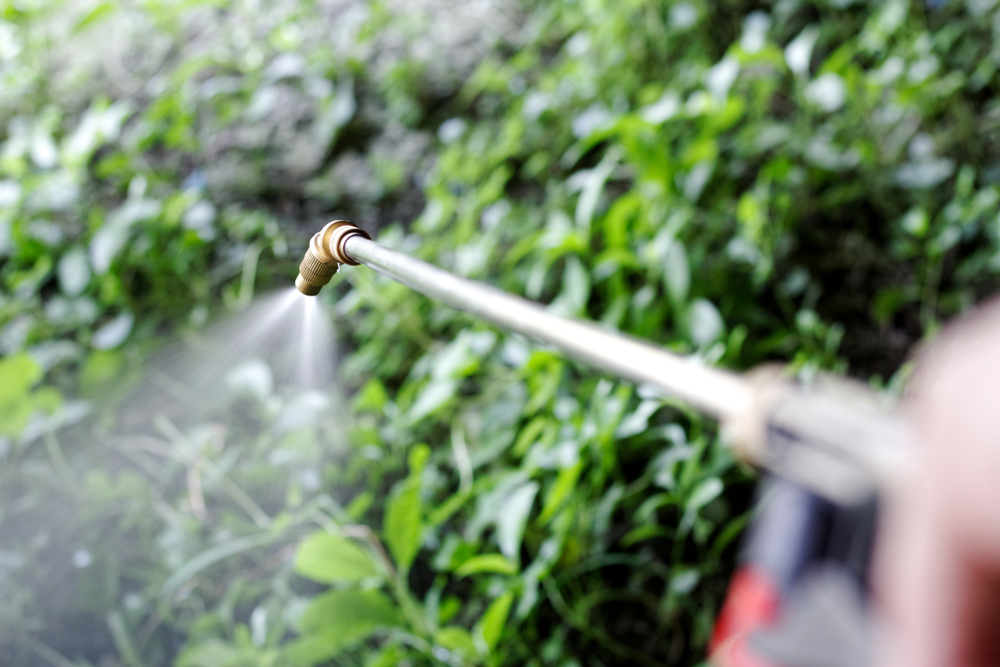The controversy surrounding Bayer AG and its Roundup weedkiller continues to escalate as the company faces massive verdicts in non-Hodgkins lymphoma lawsuits. With a wave of additional trials set to take place throughout 2024, Bayer is reportedly considering a controversial bankruptcy scheme known as the “Texas two-step” to force settlements through the U.S. bankruptcy system. Bayer’s potential bankruptcy filing could have a significant impact on Roundup lawsuits and the ongoing battle over the safety of the popular weedkiller.
Roundup Cancer Lawsuits and Allegations
The Roundup lawsuits mounting against Bayer stem from allegations that the glyphosate-based herbicide, manufactured by Monsanto (now owned by Bayer), causes non-Hodgkins lymphoma in users. Over the past eight years, Bayer and Monsanto have faced more than 167,000 lawsuits across the United States. Plaintiffs argue that they were not adequately warned about the potential cancer risks associated with Roundup.
Roundup Verdicts and Settlements
The Roundup litigation gained momentum in 2015 when the World Health Organization’s International Agency for Research on Cancer (IARC) classified glyphosate as a probable carcinogen. Since then, Bayer has paid over $10 billion to resolve thousands of Roundup lawsuits. However, the company continues to face a barrage of jury trials and new claims from users who developed non-Hodgkins lymphoma.
The Roundup lawsuits have taken a toll on Bayer’s financial standing. The company’s stock has plummeted approximately 70% since its acquisition of Monsanto in 2018, which included inheriting Roundup. Bayer’s profits have also been affected by the ongoing litigation, prompting the company to explore all possible options to protect its interests.
Bayer’s Texas Two-Step Bankruptcy Scheme
Bayer’s potential bankruptcy scheme, known as the Texas two-step, involves utilizing a Texas state law that allows companies to separate their assets and liabilities into distinct units. The unit burdened with liabilities can then file for bankruptcy, aiming to drive a global settlement for the company. This strategy has been attempted by other manufacturers facing product liability lawsuits, albeit with limited success.
Implications for Roundup Lawsuits
Bayer’s consideration of the Texas two-step bankruptcy filing has raised eyebrows within the legal community. While the move may potentially delay ongoing litigation and prevent new claims from going to trial in the short term, experts argue that the chances of success are slim. Federal bankruptcy judges have previously dismissed similar attempts by companies like Johnson & Johnson and 3M, deeming them unjustified.
Controversy and Criticism
The potential bankruptcy scheme has drawn criticism from various stakeholders. Advocates for Roundup lawsuit plaintiffs argue that it is a strategic maneuver to avoid taking responsibility for the alleged harm caused by the weedkiller. They believe that Bayer should face the consequences of its actions and provide fair compensation to those affected by non-Hodgkins lymphoma.
Debate Over Safety of Roundup, Glyphosate
The safety of Roundup and its active ingredient, glyphosate, has been a subject of debate among scientists, regulatory agencies, and industry experts. While the IARC classified glyphosate as a probable carcinogen, other organizations like the U.S. Environmental Protection Agency (EPA) maintain that it does not pose a significant risk to human health when used according to label instructions.
Numerous independent studies have explored the potential link between glyphosate exposure and non-Hodgkins lymphoma. Some research suggests a correlation, while others find no conclusive evidence to support the connection. The scientific community remains divided, with experts emphasizing the need for further research and comprehensive risk assessment.
The controversy surrounding Roundup has sparked public concern, leading to regulatory actions in various countries. Some nations have imposed restrictions on the use of glyphosate, while others have banned it outright. These actions reflect the growing unease about the potential health risks associated with the popular herbicide.
Bayer’s Legal Strategy in Roundup Litigation
As Bayer weighs the option of a Texas two-step bankruptcy filing, its legal team is exploring all avenues to protect the company’s interests. This includes engaging with law firms and advisors to navigate the complex landscape of product liability lawsuits. The goal is to reach a comprehensive settlement that addresses the concerns of Roundup lawsuit plaintiffs.
The Future of Roundup Lawsuits
The outcome of Bayer’s bankruptcy scheme and the Roundup lawsuits remains uncertain. Legal experts predict that the chances of success are slim, given the company’s financial standing and previous court rulings on similar bankruptcy attempts. The Roundup litigation is expected to continue, with additional trials scheduled throughout 2024.
Regardless of the outcome, the Roundup lawsuits highlight the importance of transparency and accountability in the development and marketing of potentially harmful products. Consumers and regulatory agencies demand clear and accurate information about the risks associated with the use of pesticides and herbicides.

